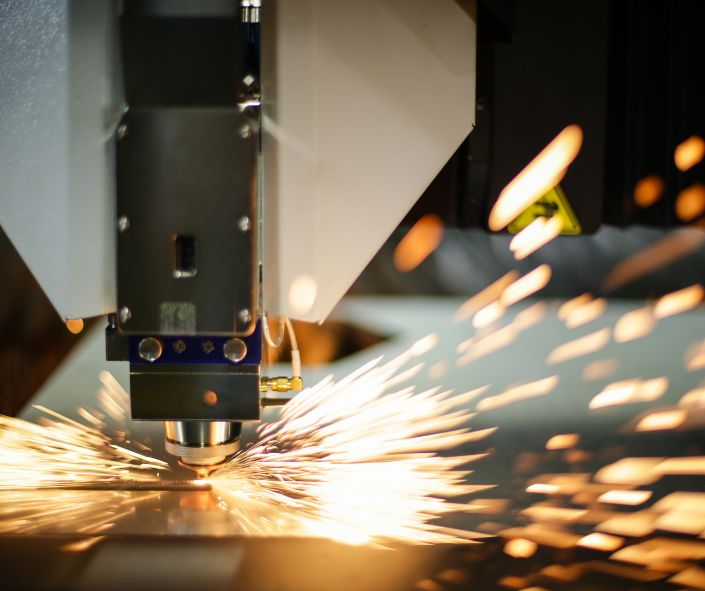Computer Numerical Control machining (CNC) has revolutionized manufacturing and engineering in the past few decades. CNC is a method that uses digital technology in conjunction with traditional machining to make high-precision components across a range of industries. This article explores the mechanics and benefits and varied applications of CNC machining in order to demonstrate the impact it has on engineering technology of the present.
The Mechanics of CNC Machining
CNC machining is a subtractive manufacturing method, which means it removes the solid workpiece or block to produce the desired shape. This process is guided through computer software that is pre-programmed to control the motion of the machine. The code that is generated for CNC machines varies based on the particular type of machine as well as the complexity of the component being manufactured. The fundamental principle is identical, but: A high-speed machine precisely shapes material to create the final product.

CNC machining comes with many advantages. One of them is its high precision. The digitalization of the process permits extremely precise and consistent production, which reduces errors made by humans and ensuring consistency across batches. This is vital in areas like medical devices, aerospace, and automotive manufacturing, where even minor deviations could lead to devastating consequences.
The role of digitalised computers in CNC Machine Operations
CNC Machining is a highly efficient and precise process that relies on digital technology. CNC machines are operated by specialized software that automates the entire manufacturing process. This software converts computer-aided design (CAD) models into a series of precise instructions, which the CNC machine then follows to create the part. These instructions determine everything from speed and direction to the depth and angle of every cut.
In larger-scale industrial facilities computers are usually integrated directly into CNC machines, which allows for seamless communication and control. This integration enables real-time monitoring and adjustments, assuring high performance and reducing the amount of time to repair. The automation of CNC machineries also permits continuous operation, thereby significantly increasing efficiency and reducing the time it takes to complete.
CNC Machining: Its Benefits
CNC machining is a highly efficient method of manufacturing. One of the most significant advantages is its ability to create complex and intricate parts with high precision. CNC machining is precise, eliminating the need to make manual adjustments or rework. This reduces waste and increases efficiency. CNC machines are also able to work continuously. This makes them suitable for production runs of large scale.
CNC milling has another benefit: flexibility. When you change the software it is possible to create a variety of parts. CNC machine is able to be modified, making it appropriate for prototyping as much in mass production. This allows manufacturers to respond quickly to changes in demand.
Automatization of CNC machining improves workplace safety. Because it reduces the need for manual intervention, the risk of injury and accidents is reduced. CNC-machined products are additionally more reliable and work better, which improves customer satisfaction.
CNC Machining Services Benefits for Industries
The versatility, precision and effectiveness of CNC machining are used in many industries. CNC machines are used in the aerospace sector to create vital components that must satisfy rigorous safety and performance requirements. CNC machines are used in the medical device sector to produce complex implants and surgical instruments, where precision is the most important factor.
The automotive industry utilizes CNC machining to manufacture engine components, transmission parts, and intricate exterior and interior features. Similar to electronics, the industry benefits from CNC machines’ ability to create tiny, precise parts for consumer electronics and communications devices. Even the jewelry and art industries utilize CNC technology to produce intricate designs and custom-made pieces.
The future of CNC Machining
CNC capabilities for machining are anticipated to increase as technology advances. Innovative technologies like multi-axis machining as well as additive manufacturing integration and the use of advanced materials will continue to push the limits of what’s possible with CNC technology. Additionally, the ongoing development of artificial intelligence as well as machine learning will surely improve the efficiency and precision of CNC machine processes.
CNC machining is a powerful tool that has changed the face of engineering and manufacturing in the current era. It offers unparalleled precision, flexibility, as well as effectiveness. The capability to make high-quality, complex parts is a key instrument in a wide range of industries. As technology develops, CNC machining will undoubtedly remain a vital part in determining the future of manufacturing.